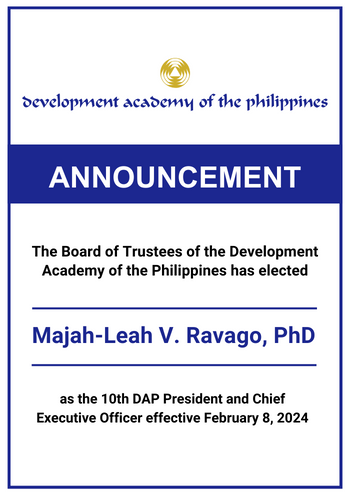In celebration of women’s month, Kabayan Partylist, in partnership with Development Academy of the Philippines (DAP) and Chevening Alumni Foundation publishes a summary of its stakeholder consultation held in December last year entitled “The state of maternal and children’s health and nutrition during pandemic.” Sharing a common advocacy of pushing for women’s and children’s health and nutrition, the organizers held a virtual stakeholder
consultation attended by government agencies, private groups, non-government organizations (NGOs), health and nutrition practitioners, academe as well as other concerned stakeholders.
“We need to strengthen government programs and projects, as well as provide sufficient handling of these programs and projects especially during these times of uncertainties. The negative consequences of health malnutrition are crucial to the individual, the whole society and the economy. It is very costly. I will ensure that the inputs gathered in the consultation will be used in crafting policies, particularly legislative measures that will holistically support maternal and children health,” emphasizes Cong. Ron P. Salo, representative of KABAYAN Partylist.
The webinar, a series of continuing discussion which began in 2019, focused on the new challenges faced by mothers during the pandemic particularly during the community lockdown. The discussion covered existing government programs as explained by DOH Undersecretary Rosario Vergeire and representatives from Department of Social Welfare and Development (DSWD) where they revealed the numerous challenges faced by the government in addressing the needs of the communities during the pandemic.
Dr. Jewehl Gay R. Salo, DAP family medicine consultant further revealed the different emotional and mental challenges faced by mothers during the community quarantine. She emphasized that several mothers have struggled during the lockdown because of several factors such as opportunity losses with some losing jobs and having husbands who lost their jobs, aggravated mental and emotional stress in to handling the impact of the pandemic, as well as other circumstantial factors that affected their inability to provide optimum nutrition for their children.
This was also affirmed by the research presented by former Executive Director of Philippine Center for Population and Development Dr. Jondi Flavier conducted a research entitled “A study on the feeding practices of mothers and young children observed during the pandemic in Brgy San Manuel, Tarlac and Krus na Ligas, Quezon City” which provided data on how the mothers in the communities coped to overcome these adversities during the community quarantine.
Marikina Second District Rep. Stella Quimbo dovetailed the consultation by explaining and emphasizing on the need to address the gaps because of the irreversible impact of covid- induced malnutrition to the society and the economy.
“In order to promote better maternal health, we should also look closely if we have mechanisms to address disaster risk deviation, management, and response. We should also consider the mental health, economic capacity, communal support among others, and affirm mothers to properly address the gaps we have identified…the challenge for us in the government is to properly respond to the issues with a more innovative frame of mind,” Dr. Celso Santiago, Managing Director of the Institutional Marketing Center of DAP concludes.




